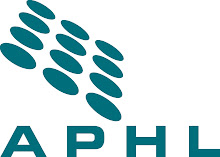Newborn screening is the process of testing a newborn baby for genetic and congenital disorders that can cause illness, disability and death. Virtually every state now screens for a core panel of 29 rare genetic and congenital disorders, which include sickle cell anemia, PKU (phenylketonuria) and MCAD (medium chain acyl CoA dehydrogenase deficiency). The test is a small heel-prick to draw blood that is then sent to a laboratory (97% of which are state public health laboratories) for testing. This test allows thousands of babies to be diagnosed with devastating diseases in the earliest stages of their lives, and allows doctors to begin managing these diseases while they still can.
State public health labs are part of a newborn screening system that includes public health staff, birthing center staff, primary care physicians, metabolic specialists, educators and families. Careful coordination among all parties ensures that the infant receives prompt and appropriate treatment, follow-up care and continued evaluation.
There are countless stories from parents who are grateful that their children are alive and healthy thanks to newborn screening.
Parenting Magazine recently published an article telling the story of one family whose baby’s life was saved by early intervention newborn screening.
And in Wisconsin, a family had a scare when a test came back positive for a fatty acid oxidation disorder, a potentially deadly condition.
APHL will be doing a series of posts to LabLog on newborn screening. Please feel free to leave comments and questions.




